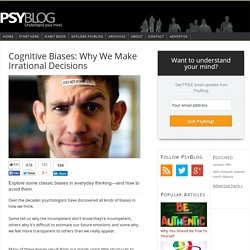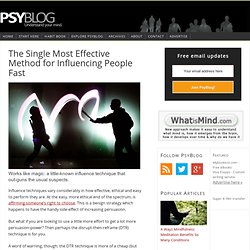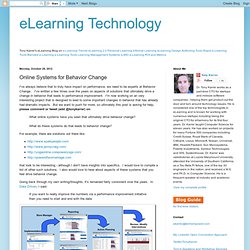

The 30 Most Common Ways You Can Lose an Argument. Work More Efficiently by Identifying Your Unique Working Style. How Much Time You Should Spend Automating a Routine Task. 50+ Savvy Insights into Workplace Psychology. Remember This Simple Equation To Run Great Meetings. Cognitive Biases: Why We Make Irrational Decisions. Explore some classic biases in everyday thinking—and how to avoid them.

Over the decades psychologists have discovered all kinds of biases in how we think. Some tell us why the incompetent don’t know they’re incompetent, others why it’s difficult to estimate our future emotions and some why we feel more transparent to others than we really appear. Many of these biases result from our minds using little short-cuts to help us navigate through a complicated world. Unfortunately the result can be that we reach irrational decisions. Understanding how these biases operate may help you make better decisions in all sorts of situations, both at home and work. Image credit: David Goehring. The Single Most Effective Method for Influencing People Fast. Works like magic: a little-known influence technique that out-guns the usual suspects.

Influence techniques vary considerably in how effective, ethical and easy to perform they are. At the easy, more ethical end of the spectrum, is affirming someone’s right to choose. This is a benign strategy which happens to have the handy side-effect of increasing persuasion. But what if you are looking to use a little more effort to get a lot more persuasion-power? Then perhaps the disrupt-then-reframe (DTR) technique is for you.
A word of warning, though: the DTR technique is more of a cheap (but very effective) trick which some might find morally questionable. OK, with the health warning over, here’s what they did in the original study which kicked off this whole line of research. $3 versus 300 pennies Davis and Knowles (1999) demonstrated the DTR technique by selling note cards door-to-door for a local charity. In the ‘normal’ condition they told people it was $3 for 8 cards. Surprisingly powerful. Five Best Productivity Methods. How Memory Works: 10 Things Most People Get Wrong. Human memory and recall works nothing like a computer, but that’s what makes it all the more fascinating to understand and experience. “If we remembered everything we should on most occasions be as ill off as if we remembered nothing.”
~William James It’s often said that a person is the sum of their memories. Your memory and recall is what makes you who you are. Despite this, memory and recall is generally poorly understood, which is why many people say they have ‘bad memories’. Here is my 10-point guide to the psychology of memory and recall (it is based on an excellent review chapter by the distinguished UCLA memory expert, Professor Robert A. 1. Everyone has experienced the frustration of not being able to recall a fact from memory. So it seems obvious that memories decay, like fruit going off. But what on earth is the point of a brain that remembers everything but can’t recall most of it? 2. Obviously the only one that’s of interest is the most recent. 3. 4. 5. 6. 7. Online Systems for Behavior Change.
I've always believe that to truly have impact on performance, we need to be experts at Behavior Change.

I've written a few times over the years on aspects of solutions that ultimately drive a change in behavior that leads to performance improvement. I'm now working on an very interesting project that is designed to lead to some important changes in behavior that has already had dramatic impacts. But we want to push for more, so ultimately this post is asking for help, please comment or tweet (add @tonykarrer) on: What online systems have you seen that ultimately drive behavior change?
What do these systems do that leads to behavior change? For example, there are solutions out there like: that look to be interesting - although I don't have insights into specifics. Going back through my own writing/thoughts, it's remained fairly consistent over the years. If you want to really improve the numbers via a performance improvement initiative then you need to start and end with the data. Understanding behaviour. In his book Drive, Dan Pink looked at rewards, consequences and motivation at work and showed that much of what we have taken for granted is just not supported by the research.

Extrinsic rewards only work for simple physical tasks and increased monetary rewards can actually be detrimental to performance, especially with knowledge work. The keys to motivation at work are for each person to have a sense of Autonomy, Mastery and Purpose, as shown in this video. With this in mind, there are times when rewards and consequences are not linked to a desired performance, and this can lead to confusion or even worse. Rewards are still an important aspect to consider in workplace performance. Consider the case of medical researchers sharing their professional knowledge and findings amongst peers. In a research-oriented work environment, it makes sense to share one’s knowledge so the whole team can be more productive.